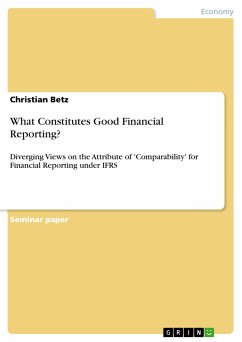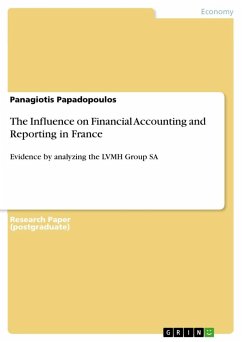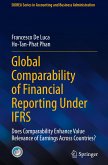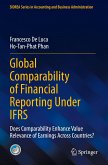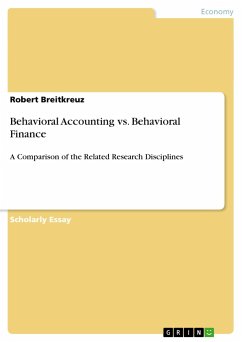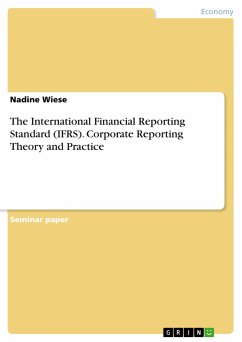Seminar paper from the year 2011 in the subject Business economics - Accounting and Taxes, grade: 1, Stockholm School of Economics (Accounting Faculty), language: English, abstract: Diverging views on the attribute of "comparability. for financial reporting under IFRSSix guest lectures at Stockholm School of Economics passed by and one word left a permanent mark on my mind. With a high regularity and consensus the representatives of different interest groups involved in financial reporting mentioned "comparability., sometimes referred to as "consistency. or "continuity., as one particularly important attribute of good financial reporting.Heurlin (2011, p. 8/12), as an IASB member, stressed the need to acknowledge consistency in financial reporting, which he regards as a proxy for good financial reporting. Scheja (2011), in his auditor role, stated that PwC has a major focus in auditing on ensuring comparability of financial reporting, i.e. by preventing the usage of non-GAAP measures for earnings management. According to him, the attribute of relevance is mainly ensured by preparers. Also, Gerentz (2011) mentioned the term comparability twice; first, stating that NCC aims at preventing managerial opportunism in IR, and second, stressing the need for NCC to create peer comparability by educating analysts about their own "more correct IFRS interpretation". Last, Malmqvist (2011), representing analysts, pointed out the importance that firms enable peer comparability, i.e. by providing comparable income statements without company-specific non-GAAP measures, where irregularities are explained in footnotes, and by using more comparable accounting methods.So, on this point: All united? As opposed to the otherwise often diverging opinions, all interest groups1 strikingly seem to be aligned that comparability constitutes good financial reporting. But do the involved interest groups really share one joint perception about the attribute "comparability. for financialreporting? In particular, is the IASB.s idea of comparability defined in the framework widely accepted in practice? Considering the different interests of involved groups, one might doubt that those groups really share a common understanding, opinion and rationale with regards to 'comparability'. This paper reflects upon the two questions by taking three explicit perspectives: (1) IASB, (2) preparers, and (3) analysts / investors.
Hinweis: Dieser Artikel kann nur an eine deutsche Lieferadresse ausgeliefert werden.
Hinweis: Dieser Artikel kann nur an eine deutsche Lieferadresse ausgeliefert werden.

